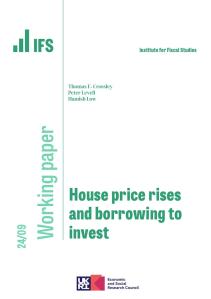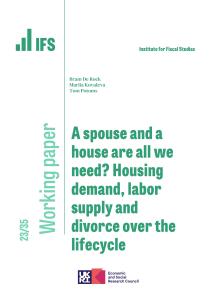This article examines a novel motive for resource pooling in family networks in rural economies: to relax credit constraints and facilitate investment in non‐collateraliseable assets for which credit market imperfections are most binding. We thus complement established literatures examining risk‐sharing motives for resource transfers within family networks, as well as motives based on kinship tax obligations. We do so exploiting the Progresa programme data, in which family networks can be identified, households are subject to large exogenous resource inflows, and detailed responses on consumption and an array of investments can be tracked in a household panel over five years.
Authors

CPP Director, IFS Research Director
Imran is Professor of Economics at University College London and Director of the Centre for the Microeconomic Analysis of Public Policy at the IFS.

University of Arizona

Giacomo De Giorgi
Journal article details
- DOI
- 10.1111/ecoj.12534
- Publisher
- The IFS
- Issue
- Volume 128, Issue 615, November 2018, pages 2613-2651
Suggested citation
M, Angelucci and G, De Giorgi and I, Rasul. (2018). 'Consumption and Investment in Resource Pooling Family Networks' 128(615/2018), pp.2613–2651.
More from IFS
Understand this issue

Spring Budget 2024: What you need to know
7 March 2024

Cake or biscuit? The UK's byzantine VAT system explained
16 November 2023

Should we worry about government debt?
11 April 2024
Policy analysis

What you need to know about the new childcare entitlements
28 March 2024

Help onto the housing ladder: the role of intergenerational transfers
8 December 2023

Around half of first-time buyers in their 20s receive financial help to buy their home, with large consequences for their subsequent wealth accumulation
8 December 2023
Academic research

There and back again: women’s marginal commuting costs
2 April 2024

House price rises and borrowing to invest
27 March 2024

A spouse and a house are all we need? Housing demand, labor supply and divorce over the lifecycle
6 November 2023